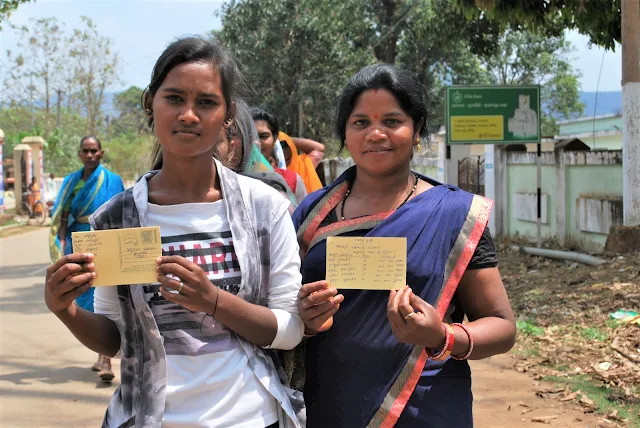By A Representative
In unique a postcard campaign to combat malnutrition, aimed at providing dietary diversity, considered crucial during adolescence, especially among girls, signed by about 40,000 adolescent girls from over 10,000 villages, have reminded Odisha chief minister Naveen Patnaik that his government's Scheme for Adolescent Girls (SAG), which converged with Pradhan Mantri Poshan Shakti Nirman (POSHAN) 2.0 in 2021, is not being implemented in the State.
Underr the scheme, adolescent girls in the age group of 14 to 18 years should receive 4kgs of Chhatua, 25 pieces of Badam-Raasi, Chikki, and 16 boiled eggs (4 eggs per week) to address their protein and nutritional needs. "But unfortunately, this still needs to be implemented", the campaign, organised by several Odisha civil society organisations (CSOs), said.
The campaign by CSOs Atmashakti Trust and its allies Odisha Shramajeebee Manch and Mahila Shramajeebee Manch, in which 10,000 postcards have been sent from 15 tribal dominated districts alone in the last one month, seeks the chief minister's immediate intervention.
In unique a postcard campaign to combat malnutrition, aimed at providing dietary diversity, considered crucial during adolescence, especially among girls, signed by about 40,000 adolescent girls from over 10,000 villages, have reminded Odisha chief minister Naveen Patnaik that his government's Scheme for Adolescent Girls (SAG), which converged with Pradhan Mantri Poshan Shakti Nirman (POSHAN) 2.0 in 2021, is not being implemented in the State.
Underr the scheme, adolescent girls in the age group of 14 to 18 years should receive 4kgs of Chhatua, 25 pieces of Badam-Raasi, Chikki, and 16 boiled eggs (4 eggs per week) to address their protein and nutritional needs. "But unfortunately, this still needs to be implemented", the campaign, organised by several Odisha civil society organisations (CSOs), said.
The campaign by CSOs Atmashakti Trust and its allies Odisha Shramajeebee Manch and Mahila Shramajeebee Manch, in which 10,000 postcards have been sent from 15 tribal dominated districts alone in the last one month, seeks the chief minister's immediate intervention.
"The aim is to highlight the issue through public awareness and seek the government's attention to address malnutrition among adolescent girls in the State", an Atmashakti Trust note on the campaign said, adding, this was done with "thousands of people from across 88 blocks in these 15 districts of the State joining mass rallies conducted at the block levels, where they submitted a memorandum to the chief minister through block development officers."
The NGO said, adolescent girls in India, especially those residing in tribal regions, are at high nutritional risk and face health issues such as anemia and chronic disorders. The National Family Health Survey (NFHS)-5 data indicates that 66.3% of women aged between 15 to 19 in rural Odisha are anemic. Also, 2,413,262 women aged in this age group are underweight.
"Under this campaign, adolescent girls and their parents turned out in large numbers to send postcards to the chief minister in the hope that their voices will be heard and the chief minister would take prompt action to improve adolescent nutritional status in the State," said Chandrama Bindhani, who organized the block-level rally in Kotagada block in Kandhamal.
The NGO said, adolescent girls in India, especially those residing in tribal regions, are at high nutritional risk and face health issues such as anemia and chronic disorders. The National Family Health Survey (NFHS)-5 data indicates that 66.3% of women aged between 15 to 19 in rural Odisha are anemic. Also, 2,413,262 women aged in this age group are underweight.
"Under this campaign, adolescent girls and their parents turned out in large numbers to send postcards to the chief minister in the hope that their voices will be heard and the chief minister would take prompt action to improve adolescent nutritional status in the State," said Chandrama Bindhani, who organized the block-level rally in Kotagada block in Kandhamal.

%20showing%20her%20postcard%20which%20she%20sent%20to%20the%20chief%20minister.jpeg)

Comments